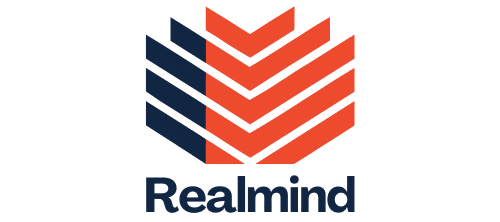Breaking down the keto diet: pros and cons

All of us have heard of various diets promising to help us lose weight, regain energy, and improve our health. One such diet that has gained significant popularity over the past couple of years is the ketogenic, or keto, diet. This diet is extolled for its fat-burning capabilities and numerous health benefits. However, as with any diet, it is crucial to understand what it entails, its potential effects on our health, and whether it is appropriate for our unique needs and lifestyle.
Understanding the keto diet
Let’s start by learning more about the ketogenic diet. It’s a high-fat, low-carbohydrate diet that aims to shift your body’s primary energy source from carbohydrates to fat.
Also read : How to maintain healthy skin through diet
Typically, our bodies break down carbohydrates into glucose for energy. However, in the absence of enough carbohydrates, our bodies enter a metabolic state called ketosis, where fat is burned for energy instead. This results in weight loss, which is one reason many people adopt this diet.
Not all foods are keto-friendly. High-carbohydrate foods such as bread, pasta, and certain fruits are off-limits. Instead, your diet should primarily consist of fats from foods like avocados, fishes, and nuts. Protein intake is also essential but should be moderate.
Also read : The impact of hydration on overall health
Weighing the potential health benefits
Switching to a ketogenic diet can bring with it several potential health benefits. One of the leading reasons is weight loss. Because your body has switched to burning fat for energy, it results in a more efficient weight loss process.
The ketogenic diet might also have benefits beyond weight loss. Some research suggests that a low-carbohydrate diet can help manage conditions such as epilepsy and type 2 diabetes. Also, it may help to reduce risk factors connected to heart diseases, including high blood pressure and high cholesterol levels, due to its focus on consuming healthier fats.
Likewise, some experiences suggest the ketogenic diet can improve mental clarity and energy levels, although more research is required in this area.
Considering the potential health risks
While the ketogenic diet has potential benefits, it also carries potential risks. One of these is the "keto flu," a group of symptoms including headache, fatigue, and nausea that some people experience when they first start the diet.
Moreover, because the ketogenic diet is high in fat and low in carbohydrates, it can lead to nutrient deficiencies. Many high-carbohydrate foods are also rich in fiber, vitamins, and minerals, so eliminating them from your diet could lead to deficiencies.
Furthermore, the consumption of high amounts of saturated fats could increase levels of unhealthy cholesterol in your blood, posing a risk for heart disease. There is also a risk of developing ketoacidosis, a dangerous condition where the body produces too many ketones.
Analyzing the sustainability of the ketogenic diet
When considering any diet, it’s essential to think about its sustainability in the long run. The ketogenic diet is strict and limiting, which can make it difficult to maintain over time.
Because it eliminates many foods, it can be socially isolating and difficult to stick to when dining out or attending parties. Moreover, it may be challenging to meet your nutritional needs through the diet alone without careful planning and possible supplementation.
Finally, while the ketogenic diet may result in weight loss, keeping the weight off after returning to a regular diet can be challenging. This is because the body may regain the weight once carbohydrate intake is increased.
Personalizing your approach to the ketogenic diet
Just as no two bodies are the same, there is no one-size-fits-all approach to diet and health. What works for one person may not work for another.
Before starting any new diet, including the ketogenic diet, it is essential to talk to a healthcare professional. They can help you understand whether this diet is a good fit for you based on your health history, lifestyle, and goals.
In conclusion, while the ketogenic diet has potential benefits, it also carries risks and may not be suitable for everyone. It’s essential to make informed, individualized decisions about your health and nutrition.
As you navigate the world of dieting, remember that achieving and maintaining good health is a lifelong journey and not a quick fix. The best diet for you is the one you can stick to in the long run, that provides the nutrients your body needs, and that you enjoy. After all, food is one of life’s greatest pleasures!
Pros and Cons of the Ketogenic Diet from a Nutritional Perspective
The ketogenic diet, with its emphasis on high fat and low carbohydrate intake, can be a double-edged sword from a nutritional perspective. Let’s delve into the pros and cons.
One of the significant advantages of the ketogenic diet is its potential for rapid weight loss. As the body is forced into ketosis, stored fat is burned for energy, which can lead to significant weight loss. A meta-analysis of available studies confirms the efficacy of ketogenic diets in reducing body weight.
This diet also has potential benefits for controlling blood sugar levels. For those with type 2 diabetes, a ketogenic diet can improve glycemic control, reducing the need for medication. This low carb diet has also been shown to improve symptoms in individuals suffering from epilepsy.
However, the ketogenic diet is not without its drawbacks. In the long term, the diet may lead to nutrient deficiencies. Many high carb foods excluded from the diet are also rich in vitamins, minerals, and fibre. A diet low in fibre can lead to digestive issues, including constipation.
One of the main criticisms of the ketogenic diet is its high fat content. While some fats are healthy, the diet can also lead to an increased intake of saturated fats, which can raise levels of unhealthy cholesterol, increasing the risk of heart disease.
Lastly, the onset of the "keto flu" can be a challenging hurdle for individuals new to the diet. Common symptoms include headache, fatigue, and nausea, although these usually subside after the body adjusts to ketosis.
Final Thoughts on the Ketogenic Diet: It’s Not For Everyone
In conclusion, the ketogenic diet, much like any other diet, has its share of pros and cons. The potential benefits of rapid weight loss and improved blood sugar control make it an attractive option for many. However, the diet’s restrictive nature can lead to nutrient deficiencies and increase the risk of heart disease.
Remember, what is most important is not just the quick results of weight loss, but the long-term sustainability of a diet. The ketogenic diet requires a significant lifestyle change and commitment, which may not be suitable for everyone.
Before deciding to embark on a ketogenic diet, it is crucial to seek professional medical advice. It’s not a one-size-fits-all approach, and a healthcare professional can help determine if this diet is a good fit based on your health history, lifestyle, and goals.
In the intricate journey of health and nutrition, it’s always important to make informed, individualized decisions. The best diet is the one that not only helps you lose weight and improve your health but also fits seamlessly with your lifestyle and food preferences. After all, in the grand canvas of life, food is not just about survival but also about enjoyment and celebration. It’s essential to find the right balance that works for you.
